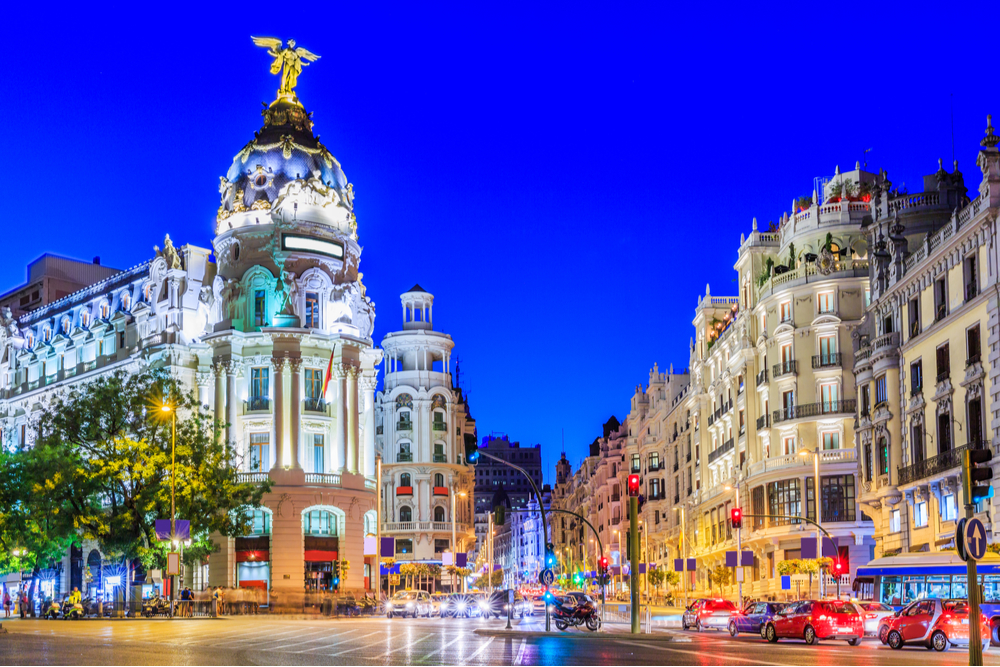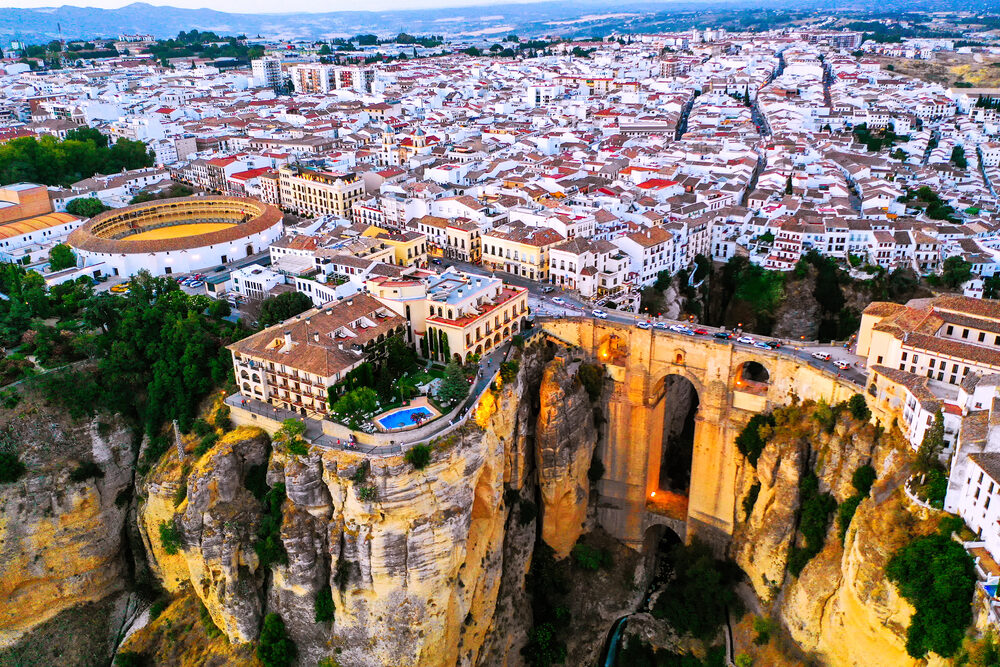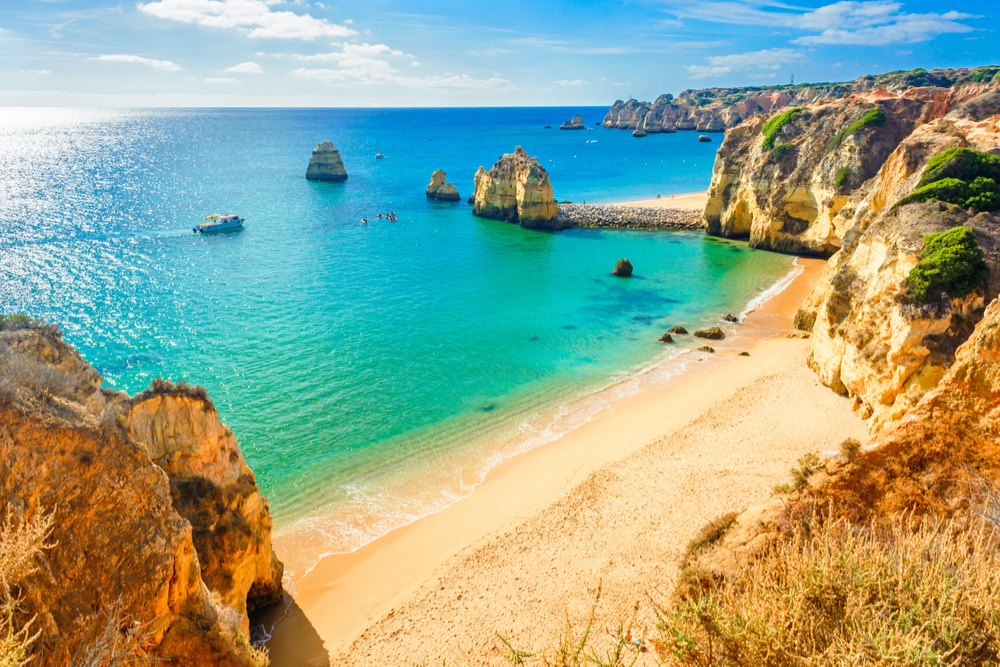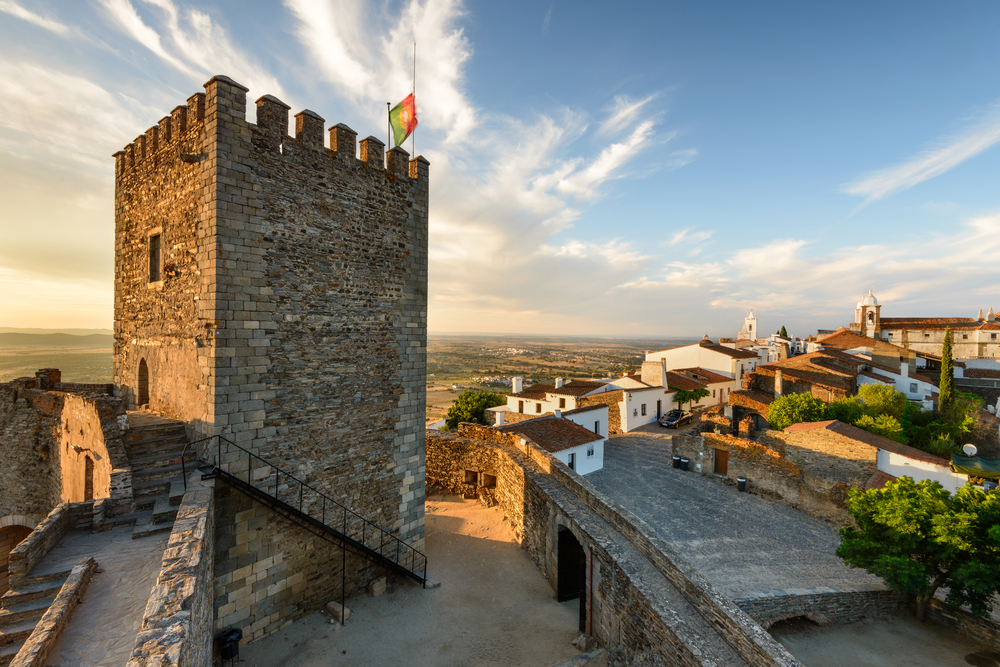Insider’s Guide to Barcelona, Spain: Where to Eat, Stay, Shop, and Play
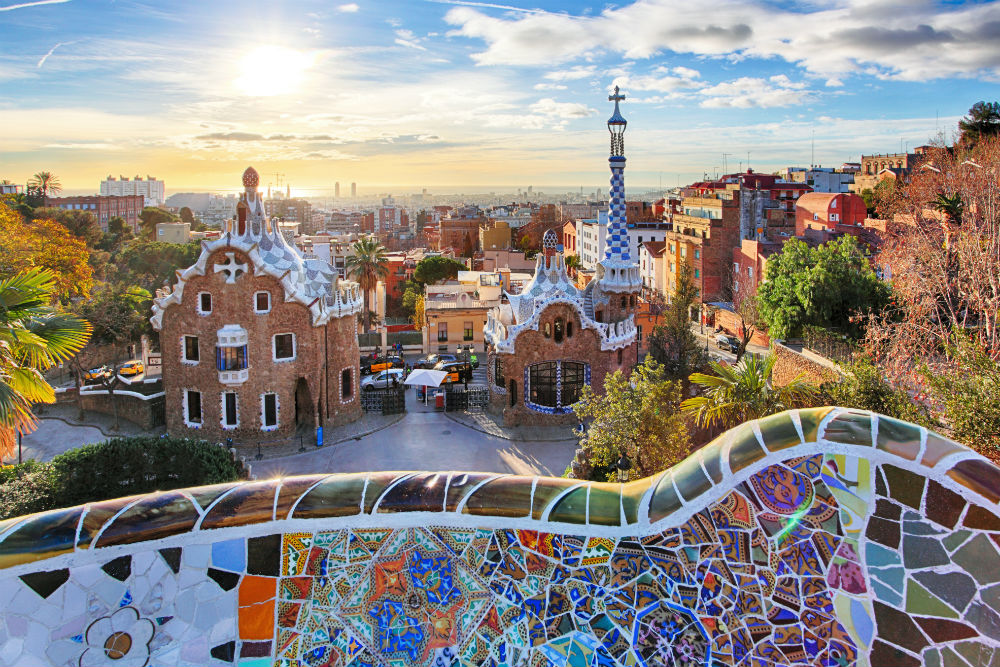 Gaudi's Park Guell rises above Barcelona’s skyline. Photo: Shutterstock
Gaudi's Park Guell rises above Barcelona’s skyline. Photo: Shutterstock
The insider advice on this page is from one of Wendy’s Trusted Travel Experts for Spain and Portugal: Virginia Irurita of Made for Spain & Portugal.
Born and raised in Spain, Virginia left a decade-long career in banking in London and Madrid to found her boutique trip-planning firm in 1999. By popular demand, she later expanded her scope to include Portugal too—a natural fit, given that she speaks Portuñol (a mix of Spanish and Portuguese). She has a little black book thick with the names of local experts—museum curators, architects, chefs, flamenco dancers—eager to show you their corners of the Iberian peninsula. Her bespoke itineraries extend to the Balearic Islands, Azores, and Madeira too. Virginia has a particularly keen interest in wine and winemaking—so keen, in fact, that she bought herself a vineyard on the banks of the Douro River—and she is especially well-connected in the foodie world. Virginia’s savvy local drivers and clever guides will save you considerable time and hassle. If you prefer to rent a car and drive yourself, or you’re seeking more limited arrangements, click to Ask Wendy for a different recommendation.
Where to Stay and Eat
Best bang-for-your-buck hotel
Seventy Barcelona blends the warmth of a Mediterranean guesthouse with the vibrancy of a modern space in avant-garde architectural style. The location is unbeatable, nestled between the fine shops of the elegant Passeig de Gràcia and the cosmopolitan Gràcia district, with its hole-in-the-wall eateries, design boutiques, and old neighborhood feel.
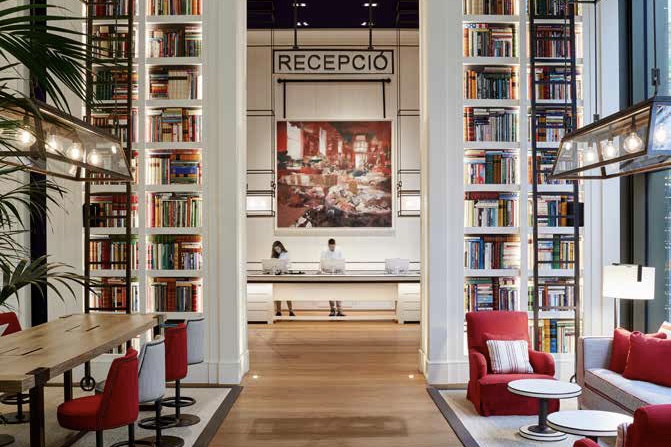
The industrial-chic lobby of the Seventy Barcelona. Photo: Seventy Barcelona
Best-value splurge hotel
Alma Barcelona is a five-star boutique hotel located in a historic building in the city’s modernist district. Its 72 rooms and suites have a clean, contemporary style with a peaceful garden, minimalist spa, and a palm-filled rooftop terrace perfect for taking in sunsets.
Restaurants the locals love
Bar del Pla is a much-loved spot in the Born neighborhood that somehow feels hidden from the crowds visiting the nearby options. Go here for vermouth, like a true Barcelonian, and indulge in seasonal tapas in an informal setting.
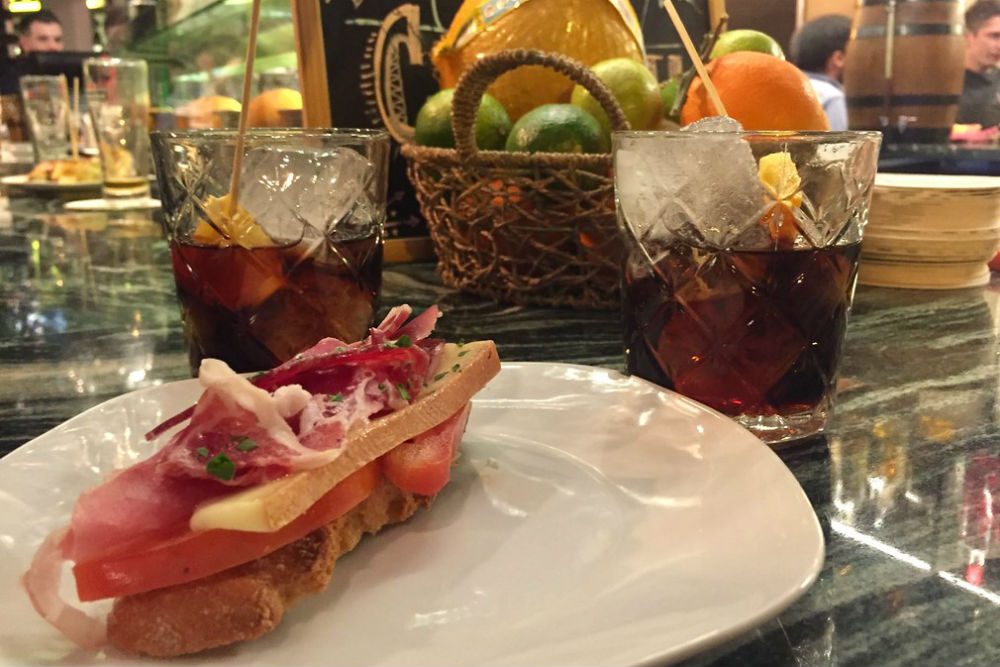
Cocktails and tapas at Bar del Pla. Photo: Made for Spain & Portugal
Good wine—with an emphasis on natural and organic vintages—and shared plates is the philosophy of Pepa Bar a Vins. It is one of the essential spots in the Eixample and will win you over with its cuisine based on local products.
Maná 75 is the new temple of rice dishes. Designed by the Turull Sorensen studio, families and groups of friends come together here to enjoy delicious paellas and fresh fish. Don’t miss their lemon tartlet either!
Dishes to try
Pan tumaca, a staple of Catalan gastronomy, couldn’t be simpler or more delicious: toasted bread smeared with a ripe tomato, drizzled with olive oil, and seasoned with salt and a little garlic—fantastic. Try it with Spanish ham and a glass of cava, the local sparkling wine.
Escalivada, a typical dish from the Mediterranean area of Spain. Local vegetables are roasted whole over direct heat and then, once cold, cut into strips and served seasoned.
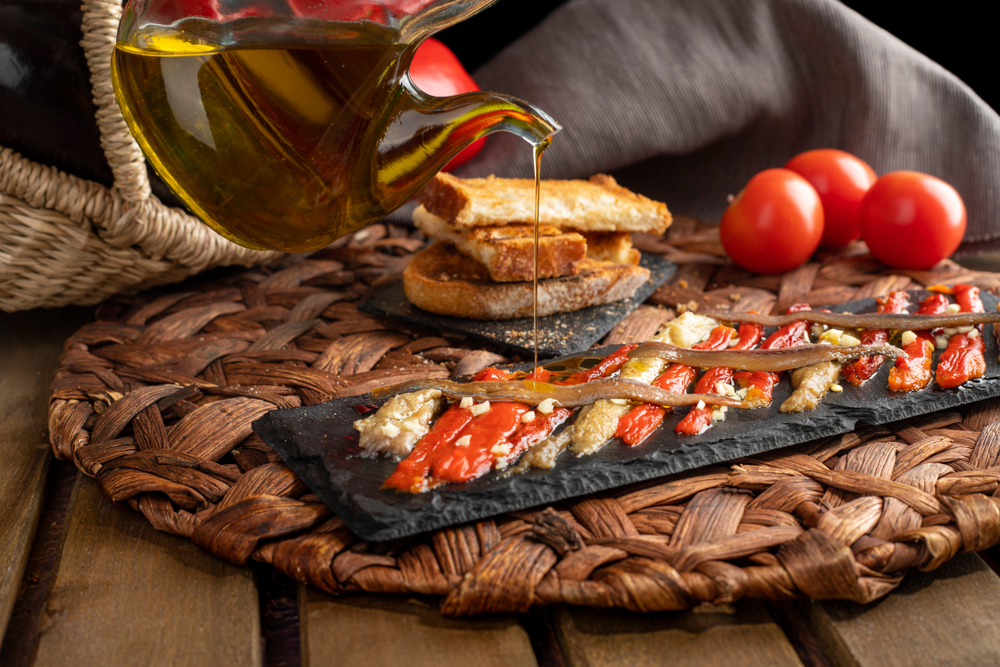
Escalivada is a traditional dish of roasted vegetables. Photo: Shutterstock
Meal worth the splurge
Disfrutar is the pride of three Michelin-starred chefs who met at El Bulli: Mateu Casañas, Oriol Castro and Eduard Xatruch. Earning third place in The World’s 50 Best Restaurants in 2022, Disfrutar pairs respect for the history and heritage of Mediterranean ingredients with creative treatments.
Prime picnic spot
Settle yourself near one of the four spouting griffins that guard the monumental fountain in Parc de la Cuitadella. Commissioned for the park’s inauguration in 1881, the fountain is bedecked in statuary that includes a giant crab (its pincers serve as stairs), a reflecting-pool Venus on an open clamshell, and an Aurora driving her chariot on high.
What to See and Do
Don’t miss
The bohemian neighborhood of Gràcia, a lively, low-rise district of beautifully preserved modernist houses. Locals come here to eat, drink, and shop at a variety of unique spots; Las Vermudas, for example, is an essential destination for aperitif lovers.
Don’t bother
Las Ramblas, the central boulevard and pedestrian mall, has been taken over by pickpockets and prostitutes; and La Boqueria, once a lively market where local people shopped, is more like a museum. Visitors go there to take pictures of food instead of buying it.
Hidden gem
Check out one of Gaudí’s lesser-known works, the Palau Güell. This urban palace, finished in 1890, was one of Antoni Gaudí’s first major projects. It’s a remarkable example of Art Nouveau and modernism in many ways, thanks to the multitude of materials used—from wood to glass to wrought iron. Many visitors miss this fascinating look at the work that led to the more famous Sagrada Familia and Casa Batllo.
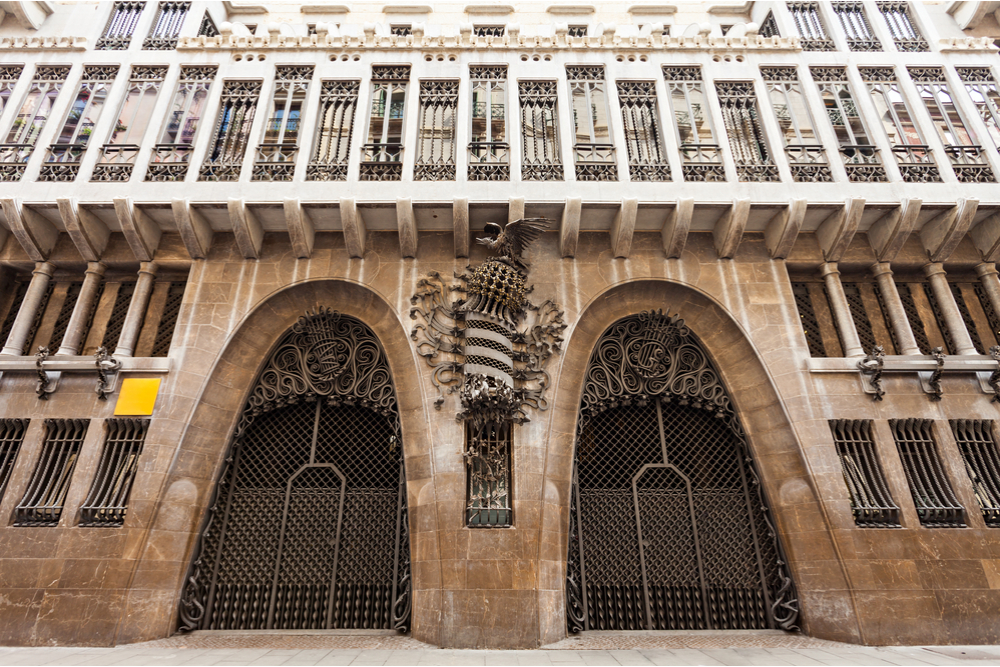
Palau Güell is an urban palace, one of Gaudí’s lesser-known designs. Photo: Shutterstock
Cheap thrill
Don’t miss the unbeatable view from Montjuïc over Barcelona, the port, and the coast. You can get to the 18th-century fortress atop the hill by car, funicular, or cable car ($15 round-trip).
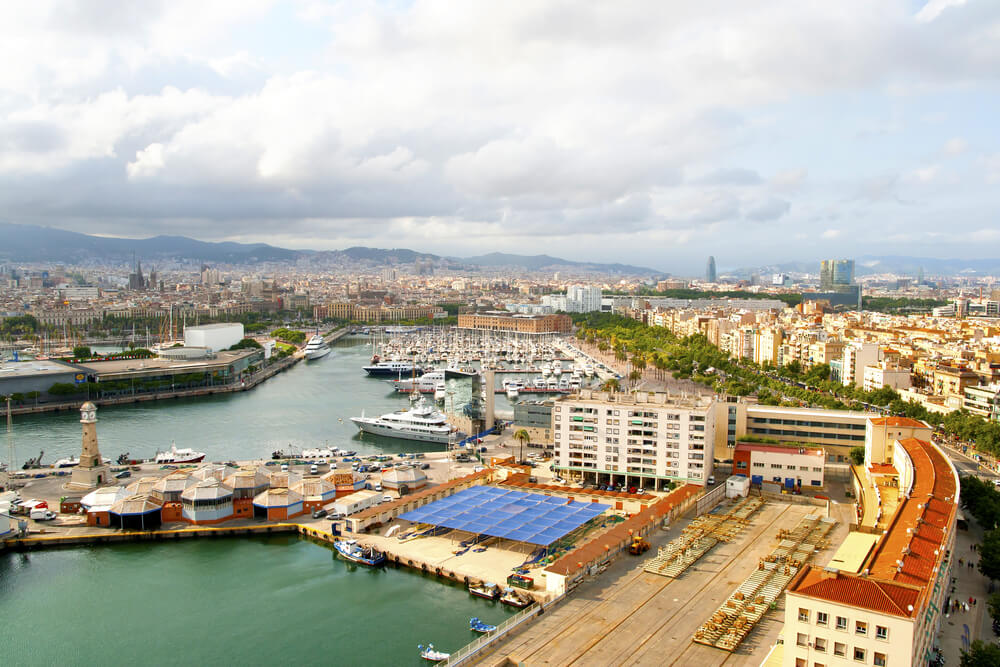
The view of Barcelona’s port from the fortress Montjuïc. Photo: Shutterstock
Bragging rights
Discover the Barcelona open to only those in the know: Spend the morning visiting totally off-the-radar shops, galleries, and workshops to experience the city’s lost arts. Visits may include a stop at a renowned shoe maker to have a pair crafted just for you, viewing the private collection of the owner of the oldest art gallery in Spain, or treasure hunting in one of Barcelona’s oldest libraries, located in an original Gaudi building that is closed to the public.
How to spend a Sunday
Enjoying a glass of vermouth. Locals designate the time before the sacred Sunday lunch for aperitivo, and vermouth is experiencing a resurgence these days. Locals sip it on the rocks, garnished with an olive and a slice of orange.
Best Time to Go
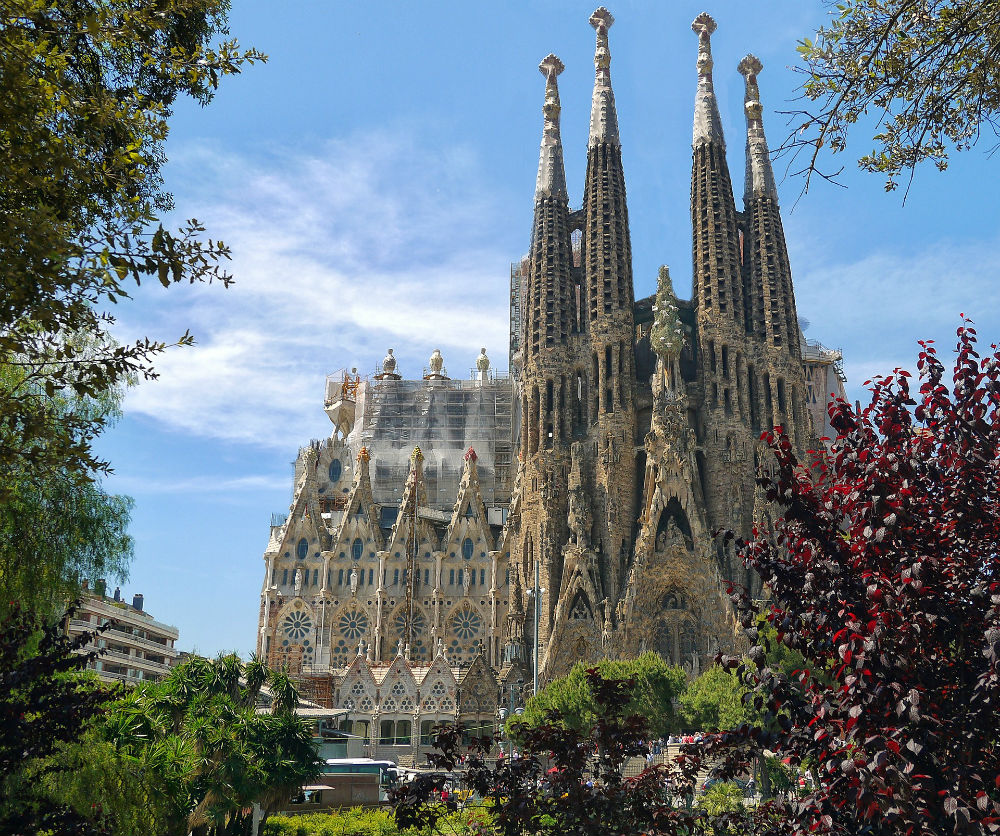
May, when the terraces and cafés open and residents head outdoors to enjoy this amiable and architecturally dazzling city before the heat sets in. Spring is the perfect time for strolling and picnicking in the sparkling Mediterranean light.
Worst Time to Go
July and August, when residents leave, many businesses close, and the spires of the Sagrada Familia blur in the summer haze. Tourist venues are packed, but daily life is practically at a standstill, and you’ll get little sense of what Barcelona is all about.
Biggest Rookie Mistake
Showing up at the Picasso Museum without a ticket; buy one online or you’ll wait forever to get in the door.
Instagram Moment
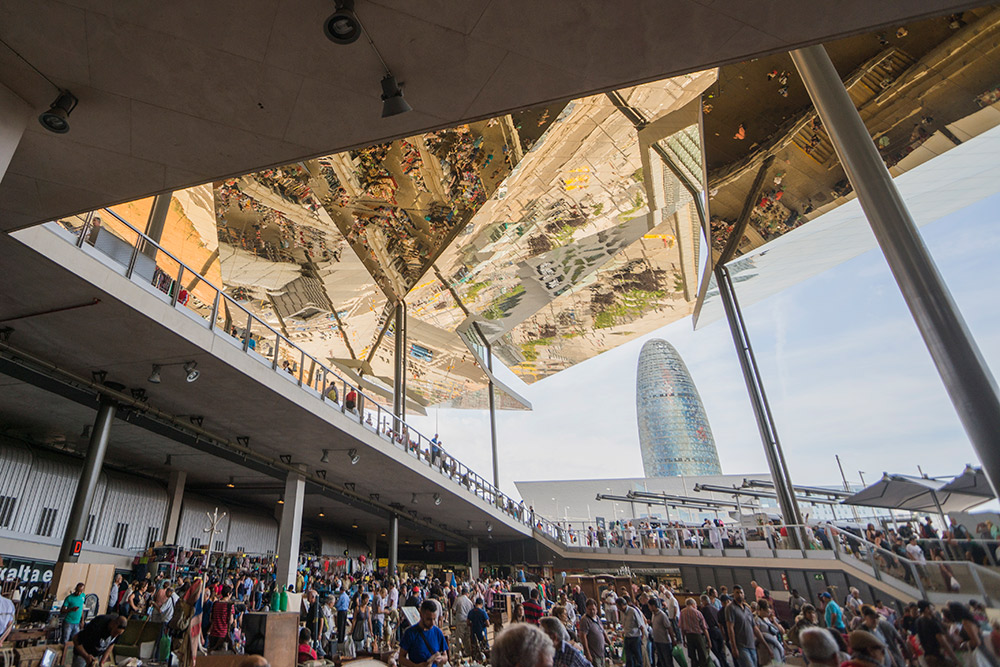
The open-sided Els Encants market has a dramatic roof of mirror-like panels that reflect the mercantile scene below. Frame it with Torre Agbar, a 31-story skyscraper nicknamed the Suppository, rising in the distance.
The Souvenirs
A handmade chocolate bar or bonbon from the Chocolat Factory, the workshop of master chocolatier Michel Laline, or a bottle of cava; you can get both at the airport.
Airport Intel
Ladies, whoever decided that the Barcelona airport should have floors that shine like a looking glass was not thinking of your modesty. Do not wear a skirt here unless you want to show the world a crystal-clear reflection of your undies.
Tipping Tip
Tips are not customary in Spain. Everyone has a salary. If the service is really good, Spaniards usually round up the bill—leaving, say, 100 euros for an 85-euro meal. Same in a taxi. If the driver is nice and the fare is 4 euros, you give 5. On the other hand, if you don’t have change or don’t want to tip, there is no rule that says you have to.
Don’t Forget to Pack
A Catalan phrasebook. Even if you only manage a few words—please, thank you, good morning, good night—locals will love you for trying.


